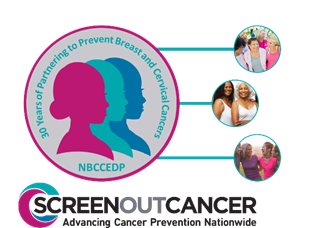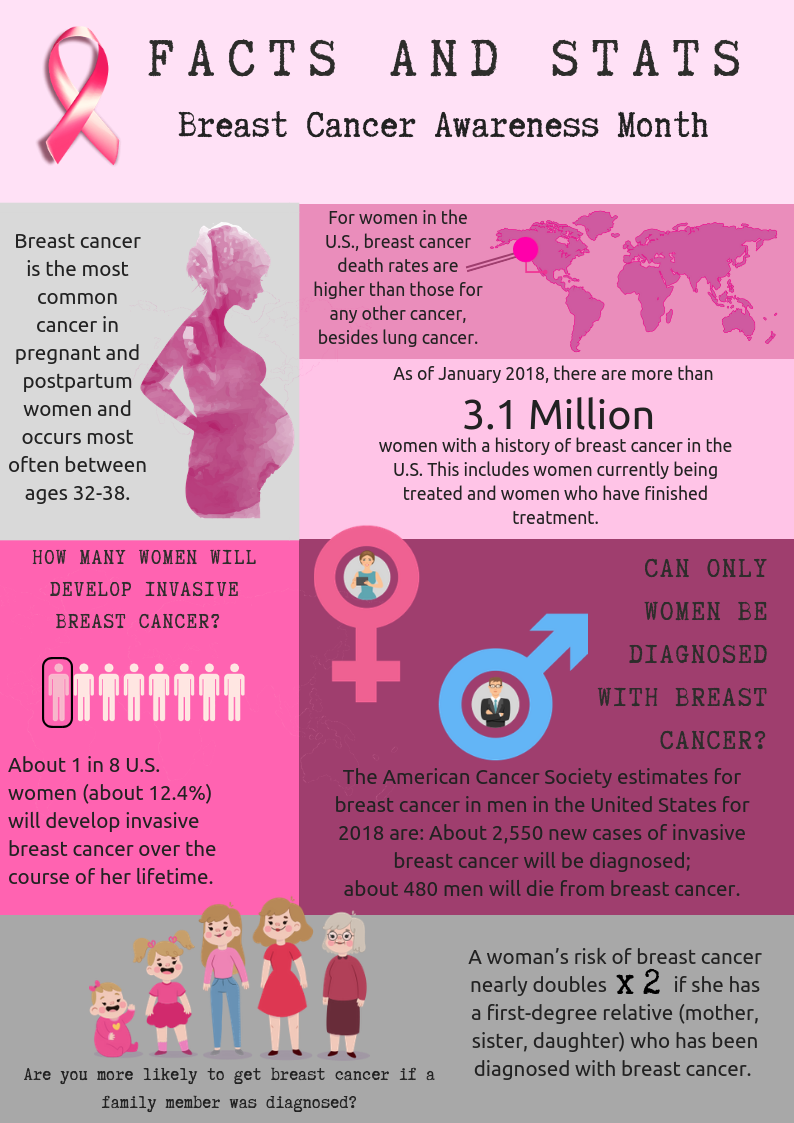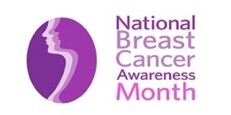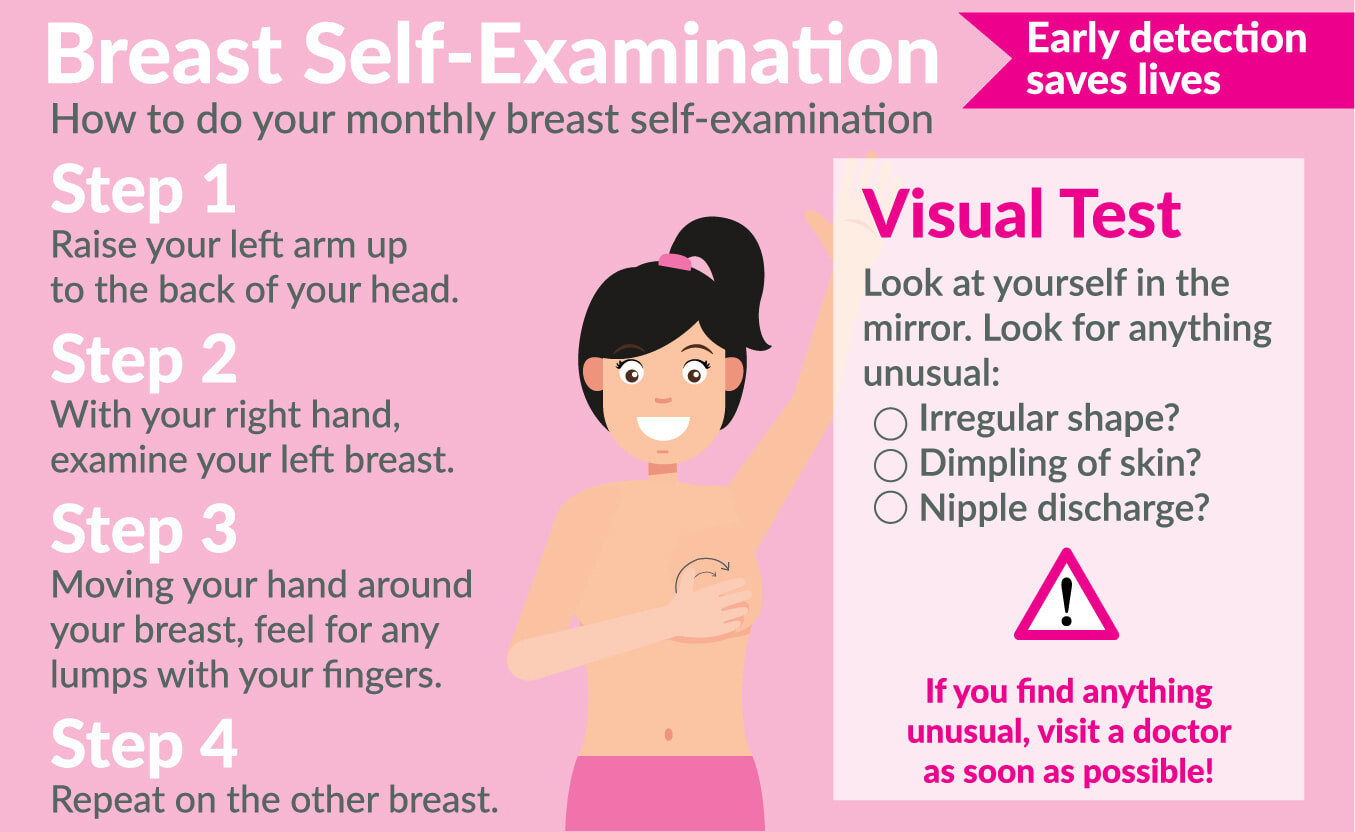Fast Facts About Breast Cancer
Source: American Cancer Society
- In 2023, in the United States, an estimated 297,000 women will be diagnosed with breast cancer and about 43,700 women die from the disease. (Source: American Cancer Society)
- Men also get breast cancer, but it is not very common. Less than 1% of breast cancers occur in men. About 1 out of every 100 breast cancers diagnosed in the United States is found in a man.
- Breast cancer mainly occurs in middle-aged and older women. The median age at the time of breast cancer diagnosis is 62. This means half of the women who developed breast cancer are 62 years of age or younger when they are diagnosed. A very small number of women diagnosed with breast cancer are younger than 45.
Trends in Breast Cancer Deaths
Source: American Cancer Society
- Breast cancer is the second leading cause of cancer death in women. (Only lung cancer kills more women each year.) A woman's chance to die from breast cancer is about 1 in 39 (about 2.5%).
- Breast cancer death rates have been decreasing steadily since 1989, for an overall decline of 43% through 2020. The decrease in death rates is believed to be the result of finding breast cancer earlier through screening, increased awareness, and better treatments. However, the decline has slowed slightly in recent years.
Reducing Your Risk
Taking steps to lower your breast cancer risk is crucial. Consider the following:
- Maintain a healthy weight and engage in regular exercise.
- Limit or avoid alcohol consumption.
- Discuss the risks with your healthcare provider if you take hormone replacement therapy or birth control pills.
- Breastfeeding, if possible, may reduce the risk.
- Transgender or Non-Binary individuals should also follow breast cancer screening recommendations.

Self-Screening
Performing regular breast self-examinations is an easy way to stay proactive. Learn more about performing a breast self-exam on the National Breast Cancer Foundation's website.
Access to Affordable Screening
If you or someone you know is concerned about the cost of breast cancer screening, Connecticut offers free or low-cost screening through the National Breast & Cervical Cancer Early Detection Program. Help spread the word about this valuable program, funded by the CDC and the State of Connecticut.


